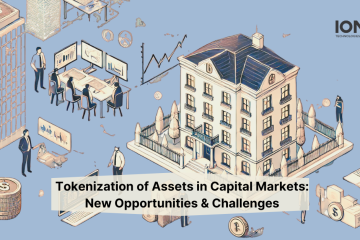With companies and institutions in the healthcare industry growing their technology spending by 8% per year, spending is on more than just equipment. Blockchain technology is creating a whole new way for healthcare professionals and consumers to interact.
Here’s how blockchain for the healthcare industry is changing the landscape.
Making Medical Records Secure
When medical records are generated and signed, they live within individual systems created by each healthcare provider. When it’s time to go to a new doctor, the file organization systems may not be compatible. That means that all of the data needs to be entered into the system manually.
This can upset the integrity of a medical record. Data sets that a new system has no space for aren’t transferred from the old record. All of that data could be lost.
In clinical trials, as well as medical records, the blockchain ensures that there is proof of the existence of a record. It also ensures that the data can’t be changed without accountability.
Managing Consent Better
Many of the forms and communications that patients encounter in healthcare are redundant. Having to fill out consent forms every time that you visit the same provider is unnecessary.
In every state, there are different privacy and consent regulations. If information were included in the blockchain, patient consent could be recorded in advance. Anyone trying to share medical data about a patient could use the blockchain to get permission to do so.
Making the healthcare industry more user-friendly for both patients and staffers is vital to improving services all around.
Creating New Avenues – Micropayments Through the Blockchain
It’s easy to make good decisions about your healthcare when you’re being incentivized to do so. If your doctor gives you a care plan, it’s hard to see the long term impacts of ignoring their recommendations. However, if you were receiving benefits for staying healthy, it might be easier to do so.
Rewards offered through the blockchain would help patients to stay in good health. Patients who helped by contributing data to clinical trials or research could keep their information secure while also allowing it to help others.
Revolutionizing Medicine Manufacturing
Manufacturing information is often collected in clunky ways. When a medicine manufacturer is looking to improve their processes and keep track of their facility, it takes lots of manual inspections. As technology improves, much of that data could be recorded by the production machines themselves.
By recording and storing parameters for manufacturing, there will be a trail of information. Production and shipment decisions could be made automatically with the help of a blockchain data stream. Changes to production could be recorded and timestamped to help limit problems in production that usually need to be backtracked following patient issues.
Improving the Supply Chain
Many pharmaceutical products are volatile. These products need to be produced, stored, shipped, and dispensed at specific temperatures. The blockchain can record this information through the entire process.
Temperature loggers transmitting the temperature history to a blockchain would protect consumers and healthcare professionals.
Blockchain for the Healthcare Industry Has Massive Potential
Once companies start using blockchain for healthcare applications, it’s sure to propagate new ideas. These new ideas will create even more applications for the technology in the near future.
For more ways that blockchain is set to change the world, check out our recent blog to how it’s going to change the government.


